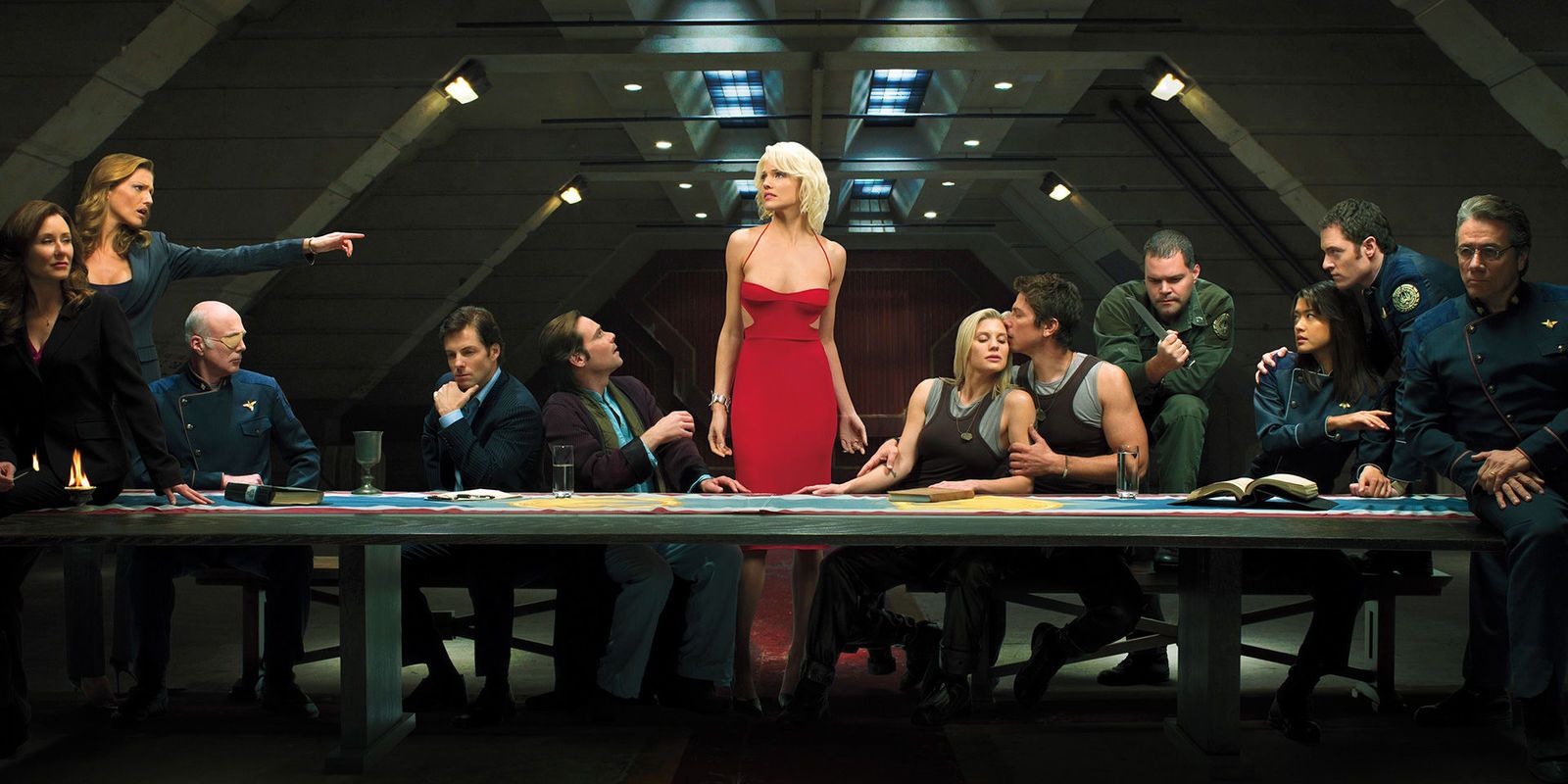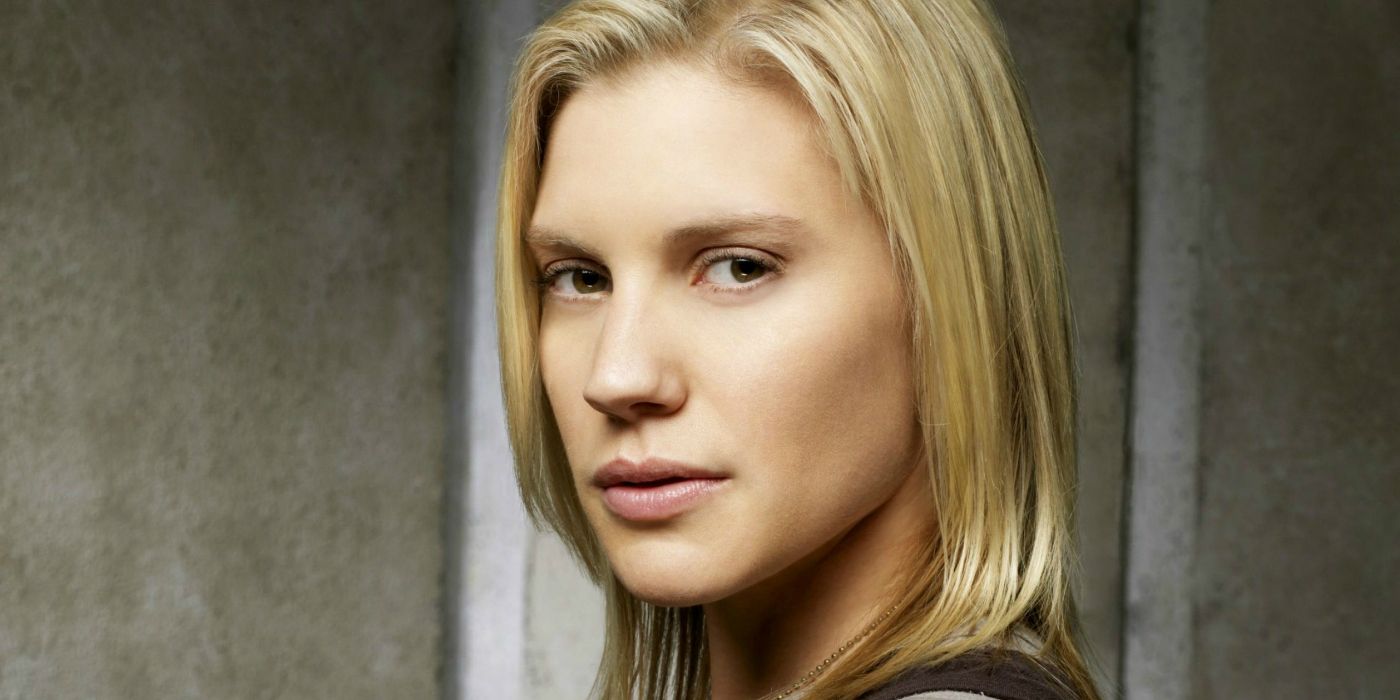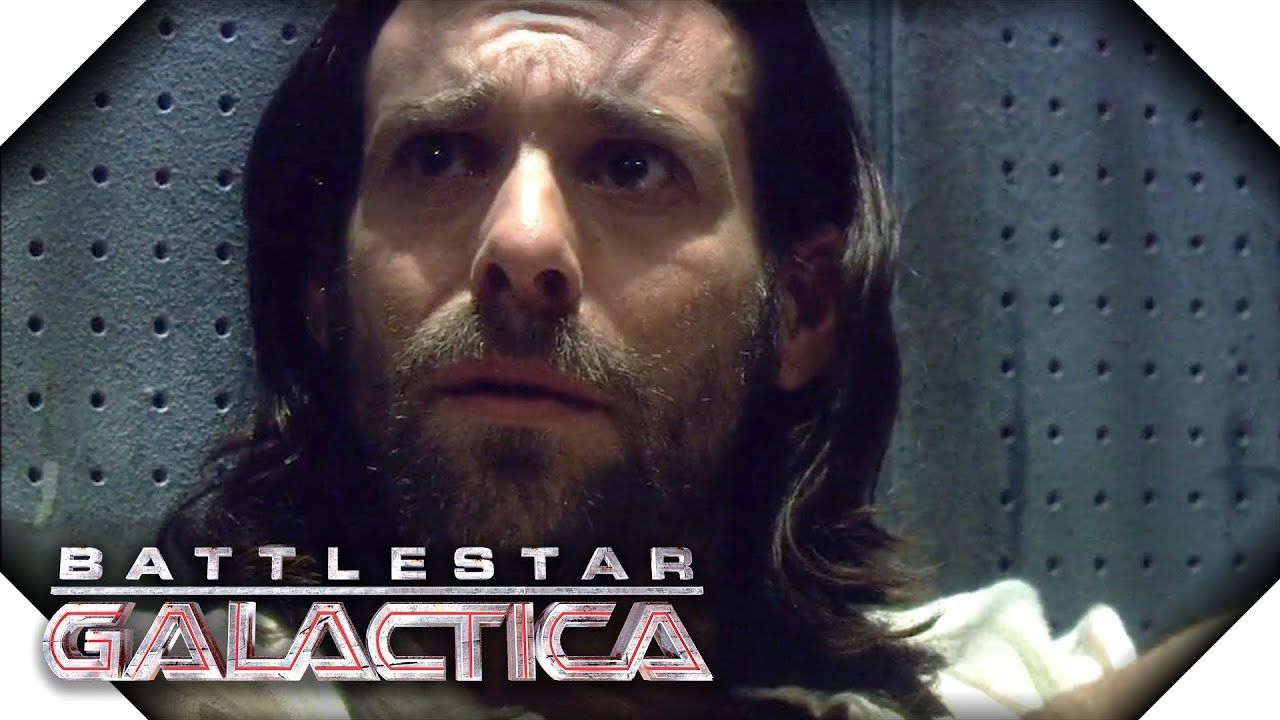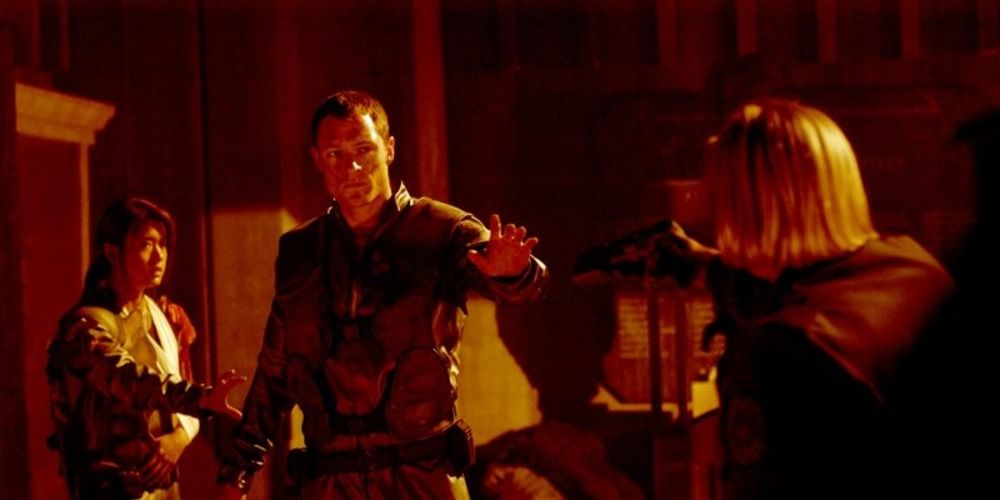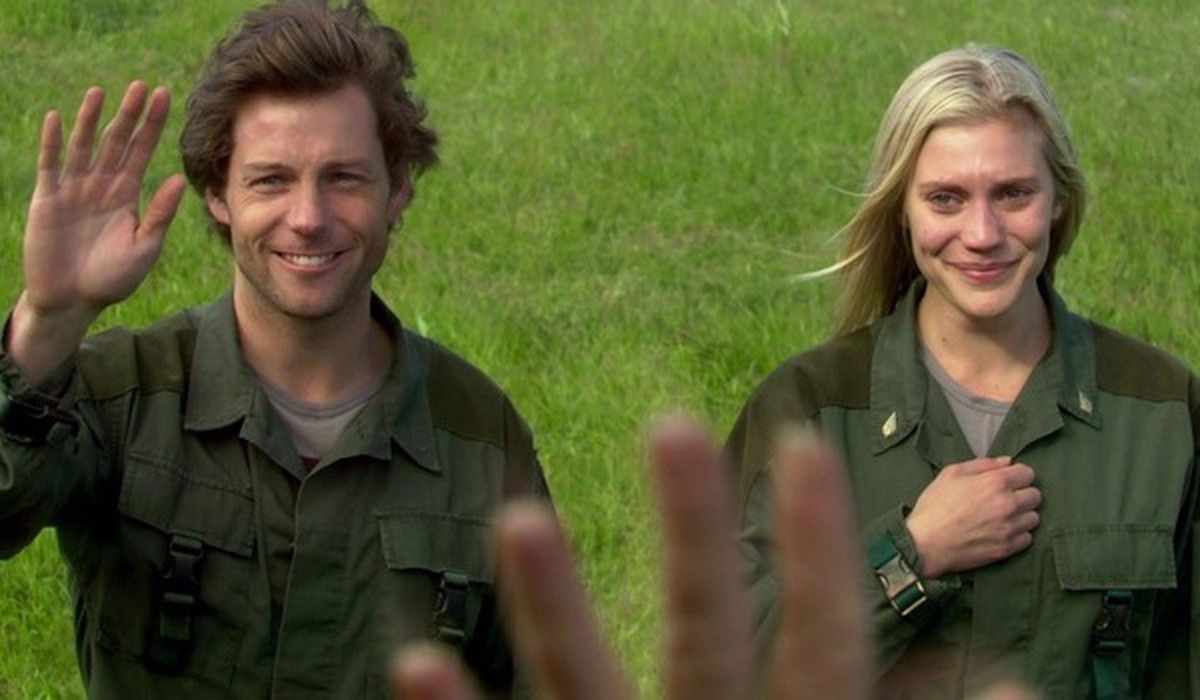The reboot of Battlestar Galactica was a landmark series for the then-called Sci-Fi, putting it on the map for quality programming and being part of a Golden Age of television. Though the show has many fans who otherwise might not have watched a science fiction series, not as many know that the series is part of a franchise that reaches as far back as the 1970s.
The original series still has its fans, but it's the reboot that is the franchise's face at this point. It may share a name and general premise with the 1978 series, but Sci-Fi's Battlestar Galactica was a vastly different show. Radically changing character genders and motivations, ditching the religious themes and darkening the tone and topics made the new Battlestar much more than a mere remake.
Starbuck
Dirk Benedict portrayed Lieutenant Starbuck in the original 1978 series and was essentially the show's equivalent to Han Solo. A smug womanizer, he was fond of gambling, smoking and getting in and out of space dogfights, which made him both a well-respected character within the show, as well as a popular character in the fandom.
Starbuck was completely changed for the reboot, however, which moved away from the more "cowboy" trope for a completely different, more "new wage" idea. This new female Starbuck, played by Katee Sackhoff, was named Kara Thrace, with "Starbuck" merely being a callsign alias. Likewise, Thrace had an extremely rugged, battle-hardened appearance, the opposite of the original Starbuck's well-coifed, dashing appearance. She did, however, share his fondness for gambling, smoking and the opposite sex, and even had some gender-bent takes on his conquests in the original series. Overall, though, this Starbuck was a much more developed character, having a past as an abuse victim and a much greater destiny.
Another character that was both gender-swapped and heavily reimagined was Boomer, who was essentially spread across several characters. This choice was initially incredibly controversial, especially by original Starbuck actor Dirk Benedict. Eventually, however, Kara Thrace's character won fans over, making her one of the show's standout protagonists.
Baltar
In the original series, Count Baltar, portrayed by John Colicos, was an almost Luciferian villain who had betrayed the humans to the Cylons. In exchange for this treachery, the Cylons would spare his home colony and have him installed as its resident dictator. He eventually forms a truce with his bitter rival Commander Adama, turning against the Cylons and giving the humans vital information on them.
James Callis portrays the reimagined character in the reboot. The character's full name is Gaius Baltar, and he's portrayed as a doctor instead of a count. Self-serving and prone to flights of fancy, the character is a far cry from the intimidating villain of the original series. Instead, he was a staunch member of the human's side, with his brief assistance of the Cylons being against his will instead of intentional treachery to his species. He eventually converts from his atheistic ways and becomes a more compassionate character, but still remains a far cry from his characterization in the original series.
A Darker Tone
The original Battlestar Galactica was made very much in the shadow of the original Star Wars movie, and it showed. The show had a generally adventurous and almost swashbuckling tone, bearing more resemblance to that film and the series that it would spawn than to fellow science fiction TV shows like Star Trek. This definitely wasn't the case for Syfy's reboot, however.
The new Battlestar Galactica was a much darker, more somber and serious affair, dealing with themes of extremism and fundamentalism, as well as the loss of civil liberties in the wake of mounting terrorism. This stemmed from its very topical, real-world influences. Whereas the original series used the success of George Lucas's iconic films as a sort of jumping-off point, this new Battlestar Galactica drew upon 9/11 and the war on terror. This led to the Cylons going from robotic overlords to being analogous to Al Qaeda, while also incorporating real-world events, such as America's occupation of Iraq.
The good guys weren't exactly portrayed as purely benevolent, either. The topical allegories had the humans essentially resorting to suicide bombing-style tactics in order to beat back the Cylons, making them sort of point-of-view characters for martyrdom. The moral complexities of the cast and much darker situations were all accented by the series' now-iconic new age score, which cemented the more dour, introspective tone.
Removing Religious Beats
The original series was created by Glen A. Larson, who was a member of the Church of Jesus Christ of Latter-day Saints. Fittingly, he incorporated several themes of Mormon teachings into the show, which are incredibly obvious to those who notice where it was implemented. One idea in the original series synonymous with Mormonism was the concept of man being as God once was. The planet Kobol is also a mere anagram of the Mormon cosmological object Kolob.
Religion still played a role in the reboot series, but it was done in a drastically different way. While planets like Kobol were kept, the more overt parallels to Mormon theology were dropped in exchange for a more generalized religious outlook. This was still an objectively Judeo-Christian religion, with the humans being characterized somewhat as the Catholic Church. The Cylons being analogous to Islamic terrorists ostensibly made them representatives of that religion.
Religion as a whole was treated in a more esoteric and deconstructed way, which fit with the show not being as squeaky-clean as the original. However, this downplayed nature for religious and spiritual elements made Battlestar Galactica's incredibly religious finale something of a disappointment for fans. This all made for a show that, while based on the original, took almost all of the core concepts in contradictory directions.
KEEP READING: Why Battlestar Galactica's Ending Was Controversial

